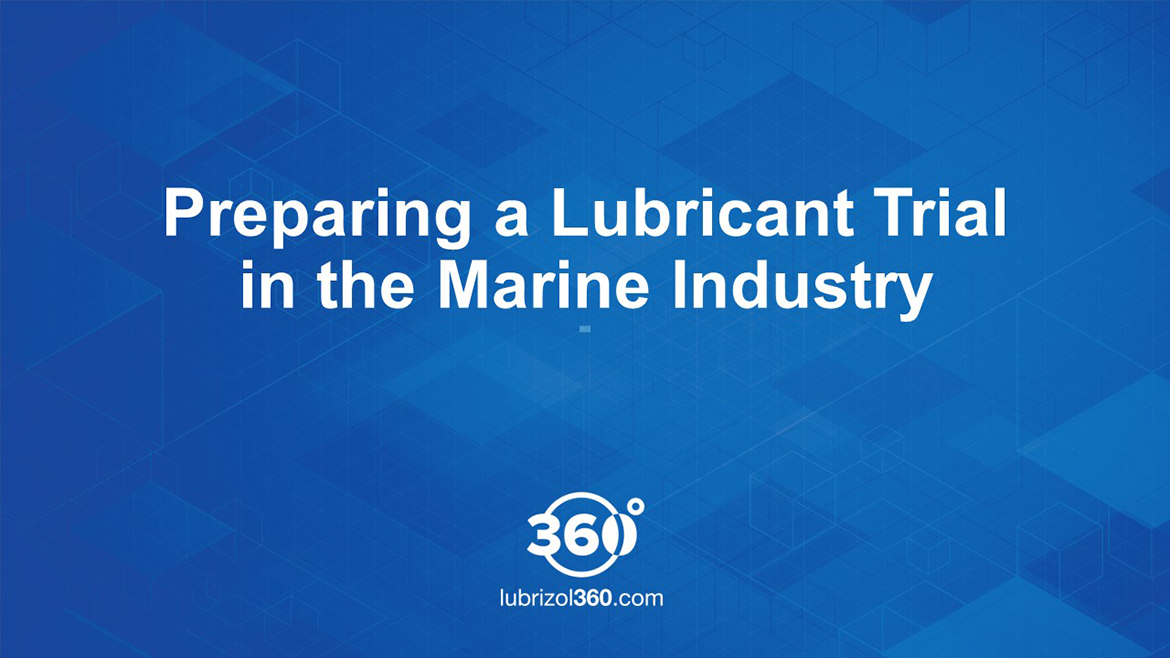May 24, 2022
Posted by Denise Rice, Project Specialist, Marine Engine Oils, Harriet Brice, Technology Manager, Marine Engine Oils
In our second video about testing’s role in the development of new marine lubricants, we discuss the key marine bench tests, and the vital properties marine lubricants must have. These bench tests are critical in understanding how a lubricants properties including viscosity, foaming, oxidation, wear protection, acid neutralization plus many others, will perform before full-scale ship field trials are undertaken.
Watch the video to learn more.
Video Transcript
We run the bench test by running to industry accredited procedures, don't we? and then, we're looking at how they perform against specifications that are sometimes put in place by OEM's.
Depending on the application of the oil, it might need to be a specific viscosity grade or fall into certain parameters. When we develop our own bench tests. We also developed our own methods and standards to run those to.
Yeah, we do like one of the modifications that we've done in the past as well, you add a little bit of acid to see about acid build up in the ship engine, so we're trying to replicate that by running our own bespoke bench test. Yeah, so it's about making sure that we do that the same every time so we can get consistent results and compare results to.
I think with testing we would start with this, Viscosity would look at elementals and then we'd look at TBN. Once we've run the initial test in to check the oils in grade, we’d sort of be looking at foam testing, so we want to make sure that the processes of pumping the oil or pumping it around the engine doesn't excessively foam.
Then we need to check that the formulation as well is not harmful to any of the metals on the engine hardware, so copper would be one that we would check the compatibility of the formulation with.
Another test that's really important for marine is the deposit testing. Yeah, so we're looking at if you've got an oil heated at a certain temperature it causes deposits on metal because we don't want the lubricant itself to contribute to deposits in the engine. We want the lubricant to be able to disperse any combustion products and contaminants to ensure that they don't end up depositing on the surfaces of the engine.
So another one of the tests we'd look at would be oxidation testing, so we want to make sure the oil doesn't oxidize, because if it does oxidize then it's changed the composition of the oil. One of the impacts of oxidation is oil thickening, so it's not gonna flow around the engine parts as easily it gets subjected to more heat for longer, so the process of oxidation, can lead to new species being formed in the oil which could contribute to deposits themselves.
There could be different types of deposits of varnish, carbonation deposits and these could affect the engine in different ways, so some of the deposits can actually insulate heat so they could make that area hotter than it would be.
Through the testing we're looking at how long of the high temperature and high pressure. Another one would look at would be corrosion during the combustion process. It can lead to acidic corrosion of the hardware of the engine.
A number of ships are operating with scrubbers, and this means that they can still use very high Sulphur fuels. With the introduction of new fuels, there might be different acids produce. We have a number of bench tests where we can look at the speed of neutralization and also how effectively the oil protects engine parts from acid.
If we expect a product, we'll be used with a range of fuels that could generate different acids, we need to investigate how well that formulation neutralizes the acids. So you also need to consider how well the lubricant protects from wear in the engine.
There are different contacts in the engine, so we want to mimic those on the bench tests as well, so there's some tests where we’re looking at changing temperature and changing pressures, and we can also change the types of metals that we're using in those tests to better replicate, say, the piston ring on the liner or the bearing materials.
If there is any wear in the engine then we're gonna get metal to metal contact and that's gonna cause metal particles to be floating around in the oil, which is not great more damaged can't and cause damage inside the engine.
If the lubricant doesn't provide a good enough film, those metal on metal contacts can cause premature failure of parts, and that's going to incur then time to replace those and also the cost of those.
The bench testing we do during product development mainly focuses on the fresh oil and the fresh oil performance and what we might see as that undergoes degradation in the engine.
Another really important place that we can look for information of how the oil is performing is in the drain oils or the scrape down oils as we call them in the two stroke engines. So I think there could be more focused in the future at looking at tests, to identify what's in those deposits, and again to improve the bench testing that actually we do on the fresh oils look more at properties and the contaminants that are in the drain oils.








